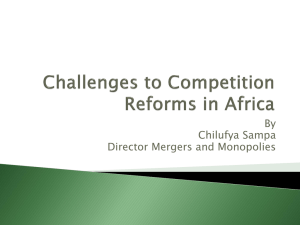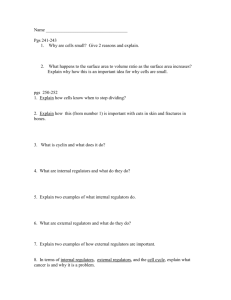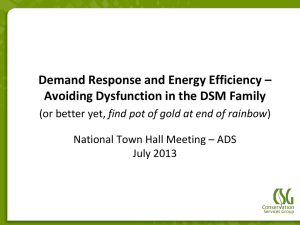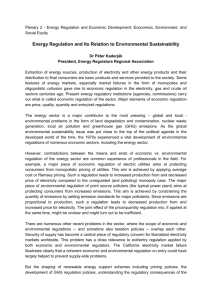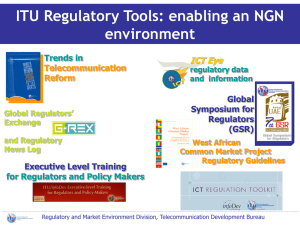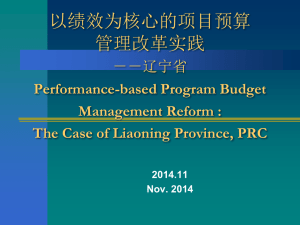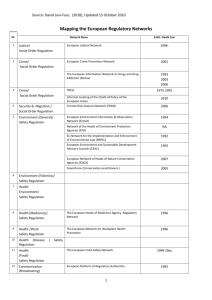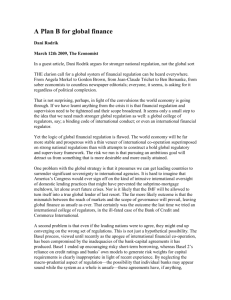Building capacity in economic regulation and the promotion of public
advertisement
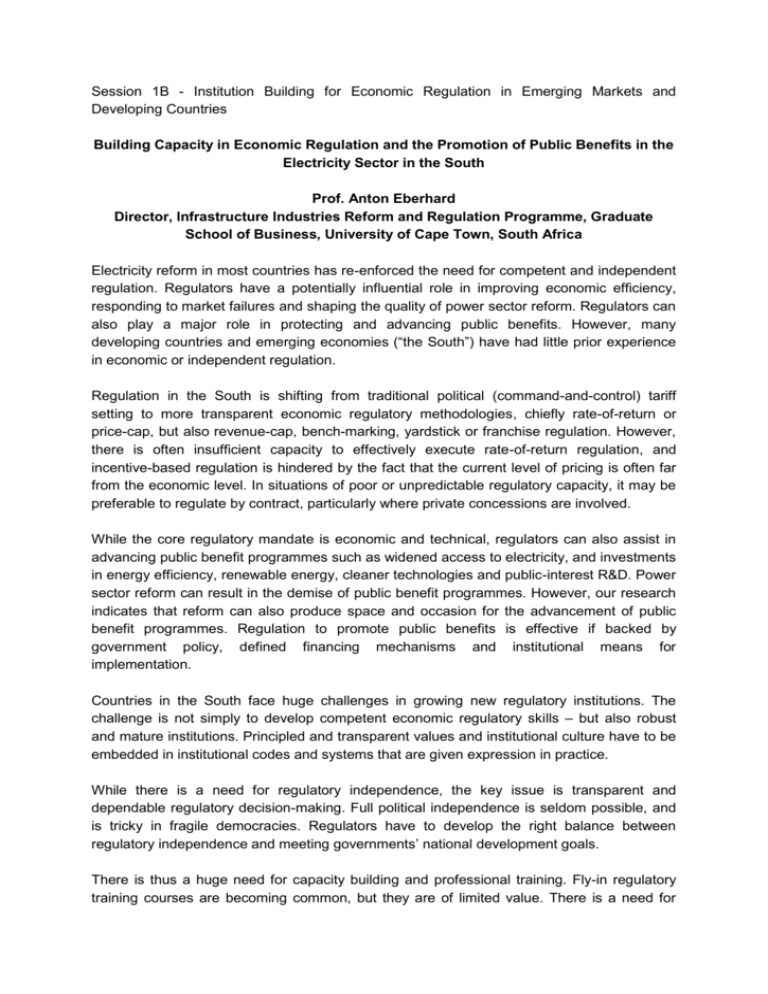
Session 1B - Institution Building for Economic Regulation in Emerging Markets and Developing Countries Building Capacity in Economic Regulation and the Promotion of Public Benefits in the Electricity Sector in the South Prof. Anton Eberhard Director, Infrastructure Industries Reform and Regulation Programme, Graduate School of Business, University of Cape Town, South Africa Electricity reform in most countries has re-enforced the need for competent and independent regulation. Regulators have a potentially influential role in improving economic efficiency, responding to market failures and shaping the quality of power sector reform. Regulators can also play a major role in protecting and advancing public benefits. However, many developing countries and emerging economies (“the South”) have had little prior experience in economic or independent regulation. Regulation in the South is shifting from traditional political (command-and-control) tariff setting to more transparent economic regulatory methodologies, chiefly rate-of-return or price-cap, but also revenue-cap, bench-marking, yardstick or franchise regulation. However, there is often insufficient capacity to effectively execute rate-of-return regulation, and incentive-based regulation is hindered by the fact that the current level of pricing is often far from the economic level. In situations of poor or unpredictable regulatory capacity, it may be preferable to regulate by contract, particularly where private concessions are involved. While the core regulatory mandate is economic and technical, regulators can also assist in advancing public benefit programmes such as widened access to electricity, and investments in energy efficiency, renewable energy, cleaner technologies and public-interest R&D. Power sector reform can result in the demise of public benefit programmes. However, our research indicates that reform can also produce space and occasion for the advancement of public benefit programmes. Regulation to promote public benefits is effective if backed by government policy, defined financing mechanisms and institutional means for implementation. Countries in the South face huge challenges in growing new regulatory institutions. The challenge is not simply to develop competent economic regulatory skills – but also robust and mature institutions. Principled and transparent values and institutional culture have to be embedded in institutional codes and systems that are given expression in practice. While there is a need for regulatory independence, the key issue is transparent and dependable regulatory decision-making. Full political independence is seldom possible, and is tricky in fragile democracies. Regulators have to develop the right balance between regulatory independence and meeting governments’ national development goals. There is thus a huge need for capacity building and professional training. Fly-in regulatory training courses are becoming common, but they are of limited value. There is a need for cooperation with, and support for, training institutions in the South. The focus should be on regional and local problems and challenges, but informed by frontiers in international experience. Each course should build on the learning from previous courses. Capacity building can also be sustained through building an alumni and network of regulators. The need, therefore, is to build sustainable training capacity in developing countries, with the support of international partners. This paper describes such a partnership at the University of Cape Town, an emerging centre of excellence in regulatory training in the South.
